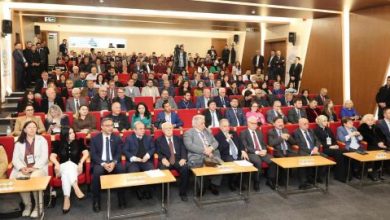A Journey Toward Intellectual Awakening

In the 17th century, true and courageous science challenged outdated and religiously rooted ideologies. The light of this revolutionary thought continues to influence the thinking of the 21st century
- History of human civilization reveals that at different times and in different regions of the world, remarkable personalities have emerged whose immortal creativity, wisdom, knowledge, inventions, discoveries, and commitment to truth played a vital role in transforming the lives of individuals within their societies.
Naveed Sandeelo
Studying the history of human civilization reveals that at different times and in different regions of the world, remarkable personalities have emerged whose immortal creativity, wisdom, knowledge, inventions, discoveries, and commitment to truth played a vital role in transforming the lives of individuals within their societies. These individuals were not merely extraordinary figures—they were also creators of character. They laid the foundations of new thoughts, established institutions, and erected towers of knowledge, lighting the lamps of wisdom amidst the darkness of ignorance.
They awakened consciousness in the minds clouded by superstition, intellectual stagnation, and outdated beliefs. Such great human beings are what Shah Abdul Latif Bhittai referred to when he said:
”وڏي وٿ ھئام، ٻاروچا ڀنڀور ۾“.
“They were of great worth, O dear, in Bhambhore.” In history, a person’s stature is determined by their immense potential and intellectual strength. One either learns such qualities objectively or creates and adopts them from within their rich inner world. The work of writers, intellectuals, scientists, political thinkers, and poets is more beneficial than ordinary labor because it not only serves individual purposes but also becomes a guiding light for millions, helping them escape the swamp of mental slavery and leading them toward intellectual enlightenment. As a result, fresh blossoms of new ideas and creativity bloom on the branches of their minds.
Take, for instance, the French writers Maupassant and Victor Hugo. Their literary prowess brought to life characters that deeply impacted readers, leaving them amazed and admiring their talent. Their writings extended beyond France, influencing the entire world, including Sindh. In the past century, philosophy has strongly shaped intellectual thought. Thinkers like Lenin, Sartre, Simone de Beauvoir, Camus, Foucault, Roland Barthes, Lacan, Marcuse, Gramsci, Fanon, Althusser, Gadamer, Deleuze, Edward Said, and Žižek are noteworthy. Some among them are advocates of human freedom, cultural critics, linguists, political consciousness-raisers, or theorists of knowledge and power.
On the other hand, look at the great South Asian poet Latif. Through his poetry, he presented ideas that still resonate today. His characters like Sassui, Sohni, Marui, Momal, Noori, Sorath, and Rai Diyach appear vividly before us, full of beauty and expression. Gazing upon the vast sky of history, we can see the radiant name of Socrates glowing like a blazing star. Propagating wisdom and truth, he stood firm against the false accusations of the Athenian jury, valuing law and philosophy above his life. For the sake of truth, he drank the cup of poison and embraced martyrdom, achieving immortality. His thoughts spread from the West to the East.
In the 17th century, true and courageous science challenged outdated and religiously rooted ideologies. The light of this revolutionary thought continues to influence the thinking of the 21st century. Every human experience, investigation, and rational inquiry is rooted in centuries of philosophical thought. Just as Michelangelo’s chisel shapes lifeless stone into masterpieces, the poetry of Keats and Shelley still moves hearts. The astronomical theories and achievements of Bacon, Newton, Galileo, Einstein, and Stephen Hawking continue to illuminate the mysteries of the universe for humankind.
While others sleep on beds of dreams, these individuals remain awake—risking their lives, igniting the fire of consciousness in their eyes. They awaken to elevate humanity and build new ideologies. Yes, they awaken to uncover the secrets of nature so that the fate of unfortunate humans might change. Bhittai paid tribute to such extraordinary individuals in the following manner:
”وچينءَ ويٺا ھون، سنجهي رھن نه سُمھي،
مھيسي منھن پنهنجو، ڌاران ڌوڙ نہ ڌون،
ڪنهن کي ائين نه چون، ته ڪي آديسي آھيون“.
“At noon they sit, they never sleep at evening time;
Their faces never turned away from themselves;
They never said to anyone: ‘We are strangers.’” (Latif)
Even before the rise of Western philosophy, more than three thousand years ago, strong foundations of wisdom were laid in Sindh. These included concepts such as Atma, Brahma, rebirth, and Nirvana, along with deep inquiries into the nature of elements, the existence of things, and their transformations—based on materialist and rational explanations. Like the atomic theory of Greek philosophers Leucippus and Democritus, India’s Charvaka School promoted materialism. Thus, the trend of understanding and interpreting philosophy in our context is not new, as often believed, but dates back centuries, rooted in Indian philosophy.
It is an irony of fate—or perhaps a betrayal by history—that such a great heritage has slipped from our grasp. This loss is not due to others but results from our own negligence and ignorance. We have abandoned our history like an orphaned child left to wander in the streets. From the Rigveda to the Ramayana, all philosophical and literary thought is an integral part of Sindh’s history, which reflects its depth and consciousness.
From Bertrand Russell and Will Durant to Allama I. I. Kazi, Muhammad Ibrahim Joyo, Rasheed Bhatti, Sikandar Mughal, and Rashid Daudpoto, many have translated and contributed to philosophical literature in Sindhi. In this short list of contributors, a young Sindhi writer, Mushtaq Jarwar, has recently made his mark by writing a book on philosophy, thus igniting a spark for intellectual enlightenment and furthering the path of knowledge. In this world, everyone lights their own small lamp. Many moths, in search of that flame, fly like arrows and burn themselves, illuminating the surroundings.
In the journey of reason and intellect, some princes like Siddhartha renounce luxury and become Gautam the Enlightened; others, in search of truth, drink the cup of poison like Socrates; and some, like Giordano Bruno, burn in the fire for the sake of science. The melody of their flutes, played for the sake of truth, continues to echo for centuries, becoming the heartbeat of millions.
Marx’s political and economic philosophy brought comfort to the oppressed and raised new moons of hope across homes, villages, cities, and streets, freeing countless souls from centuries of slavery. “They rose up, and darkness fled.”
Interest in the history of philosophy in Sindh is growing day by day. Particularly in colleges and universities, youth passionate about philosophy are shaping their own intellectual futures. Among them is Mushtaq Jarwar, who, due to his passion for knowledge and wisdom, has published two books in Sindhi on philosophy in a short period. His first book was A Brief History of Western Philosophy and his second, which you now hold in your hands, is The History of Greek Philosophy (From Materialism to Ethics)—equally engaging.
 It is worth noting that the first serious work on Greek philosophy in Sindhi was by my friend Rashid Daudpoto, titled History of Greek Philosophy, followed by my own comprehensive book titled History of Philosophy. Both were published by Roshi Publication, Kandiaro. Mushtaq Jarwar’s current book is the third installment in this intellectual series in Sindhi on Greek philosophy. The author’s hard work, passion, and sleepless nights are evident throughout.
It is worth noting that the first serious work on Greek philosophy in Sindhi was by my friend Rashid Daudpoto, titled History of Greek Philosophy, followed by my own comprehensive book titled History of Philosophy. Both were published by Roshi Publication, Kandiaro. Mushtaq Jarwar’s current book is the third installment in this intellectual series in Sindhi on Greek philosophy. The author’s hard work, passion, and sleepless nights are evident throughout.
The book is divided into ten concise chapters, which are linguistically and intellectually rich and are bound to familiarize readers—young and old—with the essence of philosophy. The core aim of philosophy is to address questions related to the meaning of life, the ultimate truth of the world, and the sources of true knowledge. It guides us toward wonder, inquiry, and doubt, and trains us in critical reasoning and rational discourse. The joy of philosophy is the joy of living a meaningful life. While wisdom does not provide wealth, it offers intellectual satisfaction and frees one from baseless desires, greed, and material bondage.
This is the liberation that every human is seeking—a peaceful refuge amidst the noise and chaos, to rest their weary soul and attain lasting happiness. Such understanding and awareness allow us to live more fulfilled, contented lives, free from emptiness and absurdity.
Mushtaq Jarwar has written this book to rescue his readers from the blind pursuit of vain desires. From Thales to Heraclitus, from Socrates to Plato, and from Aristotle to Epicurus, we encounter the wisdom of great thinkers whose ideas profoundly influenced their eras.
Looking at the chapters of this book, the first introduces the beginnings of Greek philosophy, explaining Greek history, mythology, religious traditions, literary context, and the different phases of philosophical development. The author describes humans as thinking beings—unique among creatures due to their intellect and reasoning.
The second chapter focuses on materialist monists, including the renowned Thales, who was among the seven sages of Greece and introduced the water theory, arguing that water is the fundamental element from which all things originate.
The third chapter discusses materialist pluralists like Empedocles, Anaxagoras, and Democritus. Notably, Democritus presented the concept of atoms centuries before John Dalton’s atomic theory.
The fourth chapter covers the foundations of metaphysics and focuses on Pythagoras, who introduced the term ‘philosophy’ and established a co-educational learning system.
The fifth chapter introduces Eleatic metaphysical philosophers, such as Xenophanes, Parmenides, and Zeno of Elea. Xenophanes argued for monotheism over polytheism and envisioned God as thought itself. Parmenides, one of the greatest metaphysical thinkers, believed in the eternal nature of existence and rejected the sensory world’s perception as incomplete.
The sixth chapter begins the classical period of Greek philosophy, highlighting Sophists like Protagoras and Gorgias, who laid the foundations for relativistic thinking.
The seventh chapter explores Socrates and the emergence of new schools of thought like Cynicism, Cyrenaicism, and the Megarian school. Socrates emphasized knowledge and ethics.
The eighth chapter is dedicated to Plato, who followed Socrates and wrote philosophical dialogues where Socrates is the central character. His key ideas include the theory of forms, the immortality of the soul, and literary criticism.
The ninth chapter focuses on Aristotle, covering his metaphysics, logic, ethics, politics, aesthetics, and the four causes.
The tenth and final chapter discusses ethical movements like Epicureanism and Stoicism.
Hopefully, this book will quench your intellectual thirst and allow you to uncover pearls of wisdom from the vast treasury of Greek thought.
Mushtaq Jarwar’s scholarly work on the history of Greek philosophy is certainly commendable. By citing many Sindhi and Urdu writers, like Rashid Daudpota, Naveed Sandeelo, Ibrahim Joyo, Ali Abas Jalalpuri, Kazi Jawaid, Akbar Laghari, Russell Bertrand, and Will Durrant, he has made this book reliable for future researchers. Had he also referenced acknowledged Western experts on Greek philosophy such as Alfred Weber (translated by Khalifa Abdul Hakim), and international scholars like W. T. Stace, Guthrie, Zeller, Burnet, and Bogomolov, the book’s significance and beauty would have increased further.
I believe the day is not far when philosophy will become a common subject in our society. Our younger generation will move beyond poetry, short stories, novels, traditional history, and newspaper columns and start engaging in scholarly debates, logic, and modern social and natural sciences. They will expand their studies, developing critical thinking and a deeper understanding of the essence and nature of things through logic and reason.
Read: Education, the Path to Freedom
__________________
 Naveed Sandeelo is a poet, writer and critic, and Lecturer at Department of Philosophy University of Sindh Jamshoro. He is author of five books: three books are on the subject of philosophy. Doing PhD at the department of Philosophy University of Karachi.
Naveed Sandeelo is a poet, writer and critic, and Lecturer at Department of Philosophy University of Sindh Jamshoro. He is author of five books: three books are on the subject of philosophy. Doing PhD at the department of Philosophy University of Karachi.




